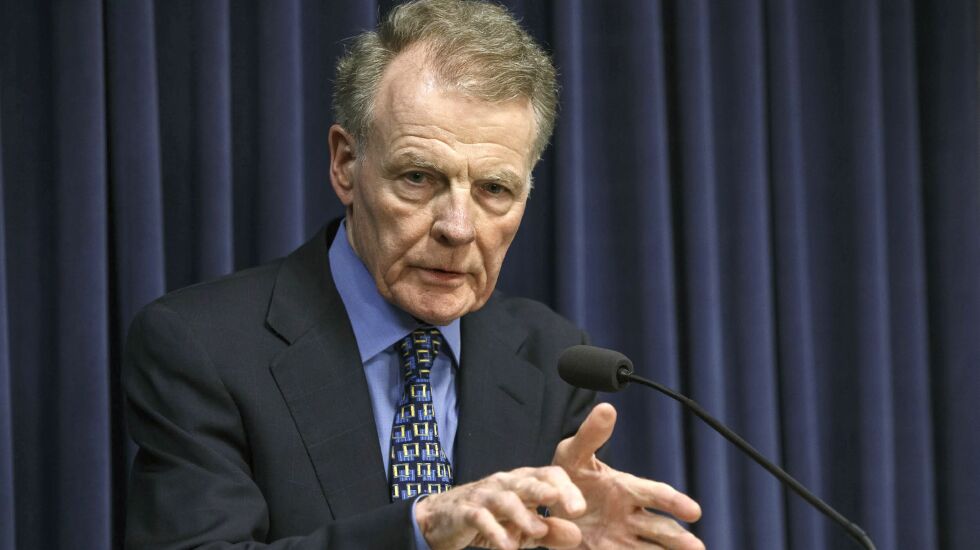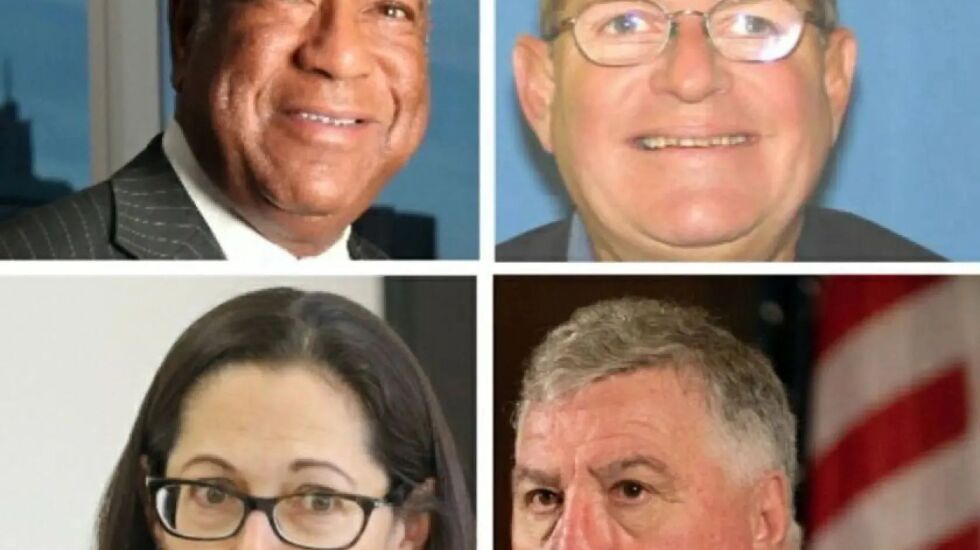
It’s been more than two years since former Illinois House Speaker Michael Madigan was driven from office by the federal indictment of four power players who are accused of trying to bribe the powerful politician to benefit ComEd.
Now, the judge presiding over the upcoming trial of the four has ruled that secret recordings forming the backbone of the feds’ case will not be widely released to the public once they are admitted at trial. Such release is standard practice in Chicago’s federal court.
Rather, U.S. District Judge Harry Leinenweber sided with Patrick Cotter, a defense attorney for Madigan confidant Michael McClain, who said he was concerned about jurors hearing “whatever the media considers to be the greatest hits” outside the courtroom.
Madigan is among those recorded on the tapes that could be played at trial.
Cotter made his comment in response to an inquiry during a pretrial conference by prosecutors, who predicted Thursday they would be fielding requests from the media for the recordings and other exhibits. Assistant U.S. Attorney Sarah Streicker said the feds’ concern was “simply the First Amendment right of the press to have access to those exhibits.”
Jurors are routinely told not to read or listen to news reports about the trials in which they are called to serve.
Still, Cotter argued that “the First Amendment will be completely respected” if journalists are allowed to cover the trial, hear the tapes in open court and report on their contents.
Leinenweber agreed with Cotter, adding that the release of the recordings would “sensationalize the trial more than we want.”
The judge said transcripts of the recordings could be released — though much of what is said in the recordings has previously been divulged.
The feds’ years-long investigation of Madigan and his allies has had significant ramifications for Illinois government. Madigan was forced in 2021 to end his record-setting tenure as Illinois House speaker two months after the indictment triggering the upcoming trial.

In the defendants’ chairs will be McClain, former ComEd CEO Anne Pramaggiore, ex-ComEd lobbyist John Hooker and onetime City Club President Jay Doherty.
The four were indicted in November 2020 and accused of a nearly decade-long scheme to sway Madigan by landing his associates jobs, contracts and money while legislation crucial to ComEd’s bottom line moved through Springfield.
The trial is expected to last as long as two months.
Madigan also faces a separate indictment for racketeering handed up one year ago. His trial is not expected to begin until April 2024.
Leinenweber also ruled on several motions during Thursday’s hearing that will govern the trial. And he told attorneys that roughly half of jurors who have already filled out questionnaires could be ruled out of the case based primarily on their answers to three questions.
The questions revolved around whether the jurors had already heard anything about the case, and whether they had any preconceived notions about lobbying, the state legislature, ComEd — or Madigan.







